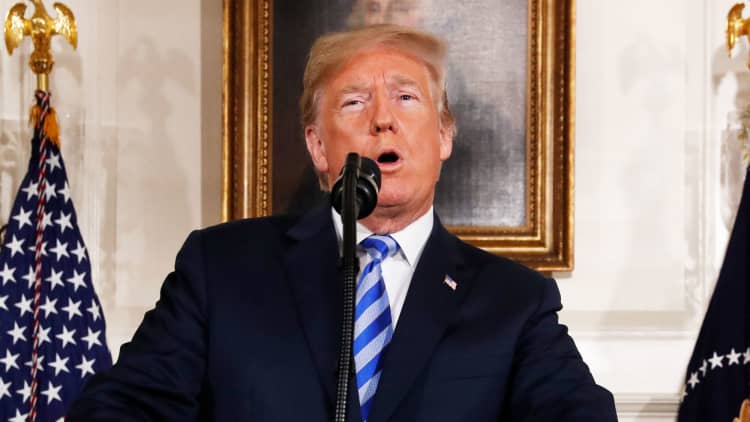Hezbollah's recent electoral success could prompt Iran to take a more aggressive approach toward Israel in the ongoing Syrian war, according to one political strategist.
Although official results have not been announced, Iran-backed Hezbollah and its allies were seen as the biggest winners in Lebanon's first parliamentary vote since 2009. The militant Shia group and its political partners claimed "victory" on Monday, after preliminary results showed the allied groups were on track to secure 67 seats in Beirut's 128-seat parliament.
Nonetheless, Sunni Prime Minister Saad Hariri and his Western-backed Future Movement remained the likely frontrunners to form a new unity government.
"With Lebanon's elections now out of the way, Tehran may no longer feel constrained over a limited military response to Israel's recent attacks on its forces in Syria," Michael Every, senior Asia-Pacific strategist at Rabobank, said in a research note published Tuesday.
"Yet, Hezbollah might not want to rock a boat that is suddenly sailing in its preferred direction," he added.
Iran vs. Israel
Denounced as a terrorist group by the U.S., Hezbollah's political mandate has grown since joining the war in Syria to support President Bashar Assad in 2012. The group's powerful presence in Beirut is seen by some external observers as a mark of Iran's regional ascendancy.
Syria has long been engulfed in a chaotic and internecine war involving numerous parties fighting for their own calculated interests. And one major geopolitical concern coming into focus in recent weeks is the escalation of clashes between Iran and Israel.
Last month, Iran warned Israel that it would be "punished" for allegedly carrying out an attack on a drone base of Tehran's in Syria. Israel's government neither confirmed nor denied the strike, which killed seven Iranian military advisors from the country's elite Quds Force in the Syrian city of Homs.
Since 2013, Israel is estimated to have carried out more than 100 airstrikes in Syria, primarily targeting the Iranian-funded Lebanese militia group Hezbollah and military convoys. But the first months of 2018 have seen Israel broaden its intervention to increasingly target its longtime nemesis, Iran, directly.
So far the conflict has not devolved into all-out war, something experts say both countries want to avoid.
But, Israel sees Iranian activity in Syria near its border as an existential threat, and aims to prevent Iranian military installations from becoming permanent bases from which Hezbollah can launch attacks into its territory. Israeli defense sources reportedly told U.S. officials in late April that any such attack would trigger a response targeting Iranian soil.
Hariri likely to continue as Lebanon's leader
Still, not all analysts agree on the broader consequences of Lebanon's election result.
"The result of the Lebanese elections does not signal Hezbollah's control of the political system as the March 8 alliance is not coherent and has been fragmenting for the last two years," Ayham Kamel, head of Eurasia Group's Middle East and North Africa practice, told CNBC via email on Tuesday.
"While Hariri has lost seats to some Sunni independents, his party remains the most representative of the community with presence across the country," he added.
Hariri, who has served as Lebanon's prime minister since late 2016, saw his party lose approximately one-third of its seats in Sunday's election. That is likely to mean he emerges in a much weaker position, analysts said, and with even less of a mandate to exert influence over Hezbollah.
In a news conference on Monday, Hariri acknowledged his party's losses but said "it's not the end of the world."
"My hand is extended to every Lebanese who participated in the elections to preserve stability and create jobs," he added, in a televised statement.
Lebanon's sectarian power-sharing laws stipulate the prime minister must be a Sunni Muslin, the speaker of parliament a Shia and the president a Maronite Christian.
The vote, which was Lebanon's first parliamentary election since war broke out in neighboring Syria in 2011, had been hailed by lawmakers as a breakthrough moment for a nation stuck in the middle of a regional power struggle between Iran and Saudi Arabia.
However, fewer than half of Lebanon's registered voters turned up to cast their ballots on Sunday, according to the country's interior minister. That's lower than the turnout recorded in 2009 and far below analysts' expectations.




